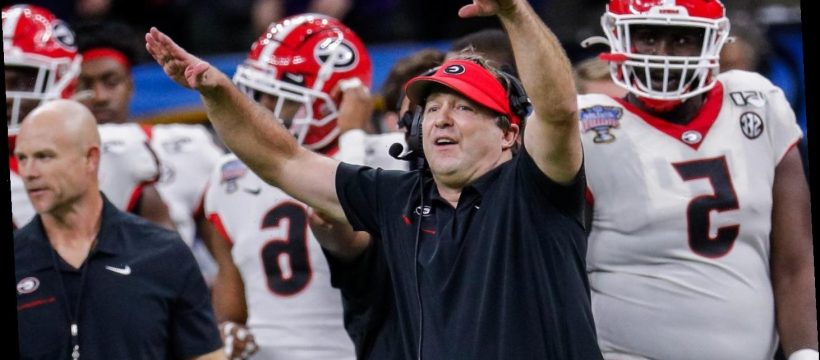ATHENS, Ga. – Georgia is taking steps that would allow it to attempt to avoid having to pay an excise tax aimed at the highest paid college coaches, a move that could save its athletics program around $2 million a year.
The excise tax is part of the changes to federal legislation enacted into law in December 2017.
It subjects certain tax-exempt organizations to a 21% tax on compensation above $1 million — including bonuses — that goes to any of their five highest-paid employees in a year.
Because the University of Georgia Athletic Association is set up as a 501(c)(3) organization, it would ordinarily be subject to the tax. But after consultation with university counsel, the association has not made any such payments, deputy athletic director for finance Stephanie Ransom said Monday.
Georgia head coach Kirby Smart's total compensation was $6.7 million in 2019. (Photo: Stephen Lew, USA TODAY Sports)
As part of its upcoming federal tax return, the UGAA will contend that football coach Kirby Smart and men’s basketball coach Tom Crean are “common law” employees of the University of Georgia and not employed by the Athletic Association itself, according to Kathy Pitts, of UGA tax preparer Ernst & Young.
The university itself does not have recognition from the IRS as a 501(c)(3) organization. Instead, it operates as a part of the State of Georgia. So, it is not subject to the tax as the law is written.
“One of the main things it boils down to is the university itself, if something happened and you decided to fire the head football coach, the university really makes that decision,” Pitts told members of the UGAA finance committee in a meeting last month.
Smart’s total compensation was about $6.7 million in 2019 while Crean receives $3.2 million annually. With bonuses included, Georgia could avoid paying about $1.25 million in taxes on Smart and $462,000 on Crean.
“The way the law is written the University of Georgia is not included because they’re not a 501(c) (3),” Pitts said. “They’re an integral part of the state of Georgia. They are not an applicable tax exempt employer that this law applies to. We looked at it also from the Athletic Association side because athletics is a {501}(c)(3), but they are not the employer of all of the people listed here (on its Form 990), the University of Georgia is…We do not believe the law applies.”
Smart’s and Crean’s contracts state that they are “to be employed by the University System of Georgia at the University of Georgia.” The coaches are ”not and will not be an employee of the Association” even though the university pays only Smart $500,000 in base salary and Crean $400,000 while the UGAA pays the remainder of their compensation. Or, as the contracts put it: “the Association has agreed to provide additional benefits and assurances … in order to induce him to accept employment with the University as Coach.”
Pitts said she thinks “there’s a pretty high chance the IRS will run a query that says, ‘Wait you’re a {501}(c)(3), …where’s our excise tax?’ The disclosures will help us explain that, but they’ll still send a notice and we’ll still have to explain.”
Contributing: Steve Berkowitz, USA TODAY Sports
Source: Read Full Article
